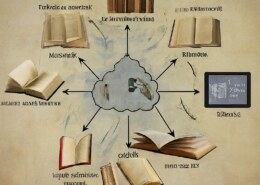What are the key differences between classical computing and quantum computing, and how might quantum computing revolutionize fields like cryptography and material science?
The development and adoption of renewable energy technologies face several challenges and opportunities on a global scale. Challenges: 1. High Initial Costs: The upfront investment for renewable energy infrastructure, such as solar panels, wind turbines, and storage systems, remains high, which canRead more
The development and adoption of renewable energy technologies face several challenges and opportunities on a global scale.
Challenges:
1. High Initial Costs: The upfront investment for renewable energy infrastructure, such as solar panels, wind turbines, and storage systems, remains high, which can be a barrier for widespread adoption.
2. Technological Limitations: Current technologies for energy storage and grid integration are not yet fully optimized, leading to intermittency issues with renewable sources like solar and wind.
3. Policy and Regulatory Hurdles: Inconsistent policies, lack of incentives, and regulatory barriers in many countries slow down the implementation of renewable energy projects.
4. Public Perception and Resistance: Misconceptions about the reliability and cost-effectiveness of renewable energy can lead to public resistance and slow adoption rates.
5. Resource Availability: Geographic and climatic conditions affect the availability and efficiency of renewable resources, making them less viable in certain regions.
Opportunities:
1. Environmental Benefits: Renewable energy significantly reduces greenhouse gas emissions and dependency on fossil fuels, contributing to the fight against climate change.
2. Technological Advancements: Innovations in energy storage, smart grids, and efficiency improvements are making renewable technologies more viable and cost-effective.
3. Economic Growth: The renewable energy sector can create jobs, stimulate local economies, and reduce energy costs over time.
4. Energy Security: Diversifying energy sources through renewables enhances energy security and reduces reliance on imported fuels.
5. Global Collaboration: International cooperation and investments can accelerate the development and deployment of renewable technologies, fostering global sustainability.


Classical computing relies on binary bits (0s and 1s) to process and store information, following well-defined algorithms that execute sequentially. Quantum computing, however, uses quantum bits or qubits, which can exist in superposition (both 0 and 1 simultaneously) and entanglement (where the staRead more
Classical computing relies on binary bits (0s and 1s) to process and store information, following well-defined algorithms that execute sequentially. Quantum computing, however, uses quantum bits or qubits, which can exist in superposition (both 0 and 1 simultaneously) and entanglement (where the state of one qubit is dependent on the state of another), allowing quantum computers to perform complex computations in parallel.
Quantum computing has the potential to revolutionize fields like cryptography and material science:
1. **Cryptography**: Quantum computers could break many of the widely-used cryptographic algorithms (such as RSA and ECC) due to their ability to perform calculations exponentially faster than classical computers using Shor’s algorithm. This could render current data encryption methods obsolete, prompting the need for new quantum-resistant cryptographic algorithms.
2. **Material Science**: Quantum computers can simulate quantum systems accurately, which is challenging for classical computers due to the computational resources required. This capability could lead to discoveries of new materials with specific properties, revolutionizing fields like drug discovery, energy storage, and materials design.
In summary, while classical computing operates linearly with binary bits, quantum computing leverages quantum mechanics to potentially solve complex problems exponentially faster. This difference could profoundly impact fields reliant on computational power, particularly cryptography and material science, by enabling faster calculations and simulations beyond the capabilities of classical computers.
See less